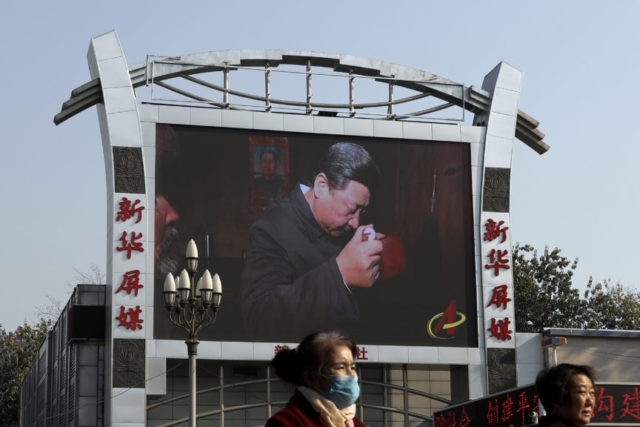Authorities in China plan to crack down on the portrayal of magic, demons, and “historical taboos” in some of the nation’s most popular television dramas, a report by Radio Free Asia (RFA) revealed Tuesday.
A document released by China’s State Administration for Radio, Film, and Television (SARFT), entitled “Regarding Filmed Television Content” and translated by RFA, seeks to prevent popular television from playing on themes related to Chinese history, religion, or mythology.
“Historical taboos may not be touched upon,” the document reads. “The outward expansion into Xinjiang during the Han and Tang dynasties mustn’t be mentioned, nor the campaigns in the northwest during the Han Wudi period.”
The guidelines also allegedly seek to ban filmmakers from portraying historical events in a way that may be sympathetic to Han Chinese colonialism dating back to the second century.
“Decadent historical values may not be promoted,” it continues. “In the case of imaginary histories, the fiction must be complete,” the guidelines say. “There should be no obvious stylistic elements linking a story to a particular dynasty.”
The document also seeks to warn producers against themes relating to the supernatural, especially with reference to Taoist magic, although “demons are allowed to make an appearance.”
“If you need to depict superstitions, you can do so in the form of dreams, mental illness, and the imagination instead of showing them as a part of real life,” they suggest.
One media graduate who spoke to Radio Free Asia said that such censorship was a common practice of Chinese Communist Party as they try to promote their ideology.
“Any job that touches on ideology in any way is a high-risk occupation nowadays,” the graduate said. “Media productions require huge collaborative efforts, but the end result is something that has been rendered sterile.”
“My friends in the media industry have to suffer this all the time; shooting and reshooting on the same old [government-approved] themes,” he said. “They are messed around even when the topic has nothing to do with politics.”
Although some filmmakers in China remain independent, they must always abide by government rules on the topics they produce.
In recent years, the regime has ordered an infusion of propaganda into every aspect of Chinese society, especially through television and documentaries. In March, a film lauding President Xi Jinping became the highest-grossing documentary in Chinese history.
As well as television material, Chinese state media have also started their own film production companies. Last year, the state-produced film Wolf Warrior 2, which tells a story of Chinese forces saving civilians from Western imperialists in a war-torn African country, became the country’s highest-ever grossing film, with a box office total of $874 million.
In January, authorities gave up on attempts to push a form of “patriotic hip-hop” and began censoring “immoral and vulgar content” within rap music, including removing the reality television program The Rap of China without providing a clear explanation.
Follow Ben Kew on Facebook, Twitter at @ben_kew, or email him at bkew@breitbart.com.

COMMENTS
Please let us know if you're having issues with commenting.